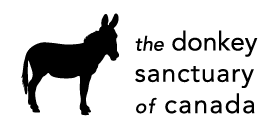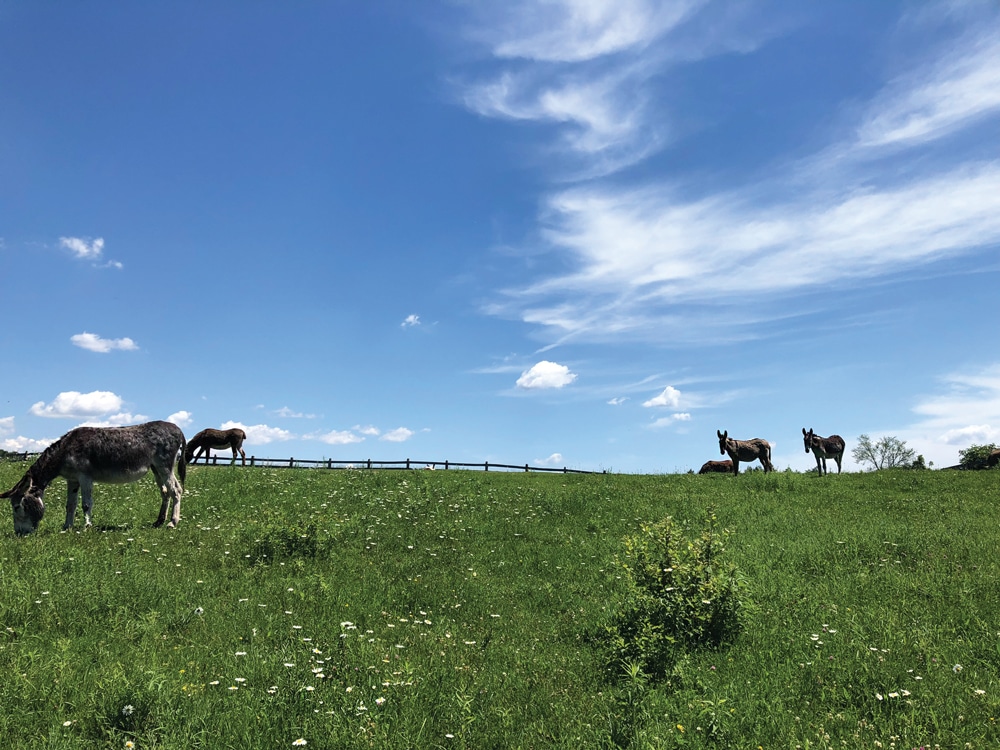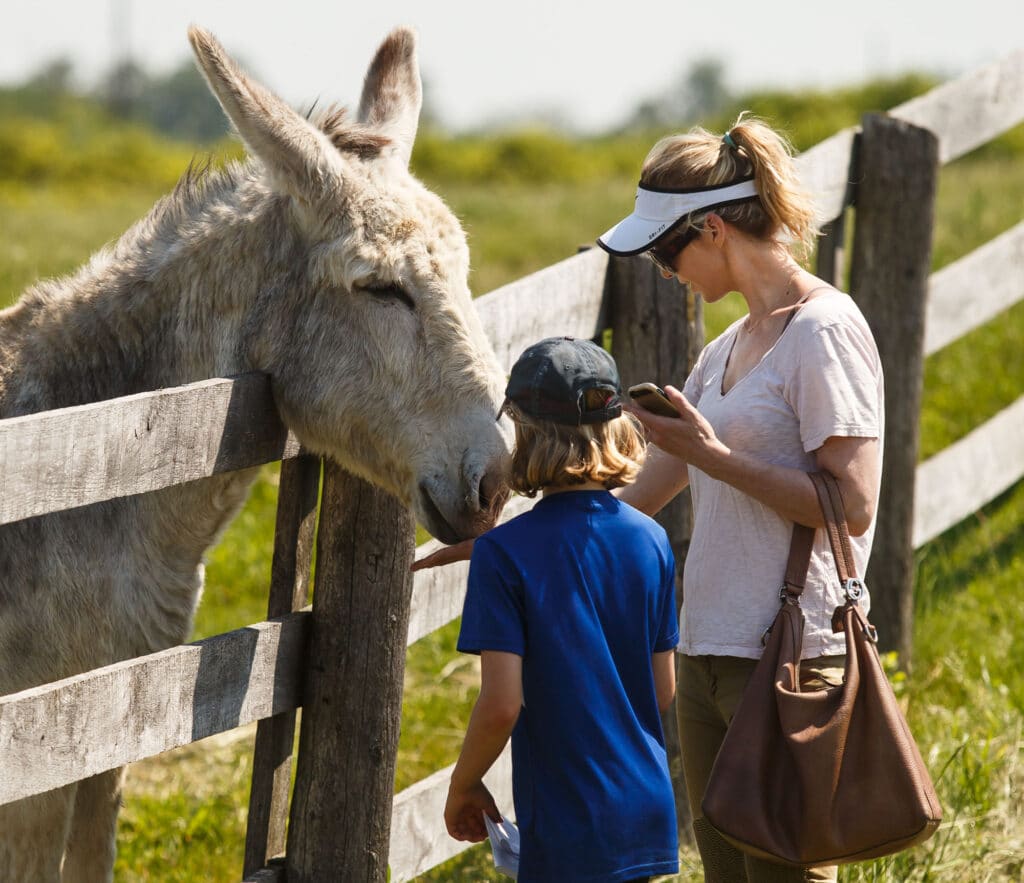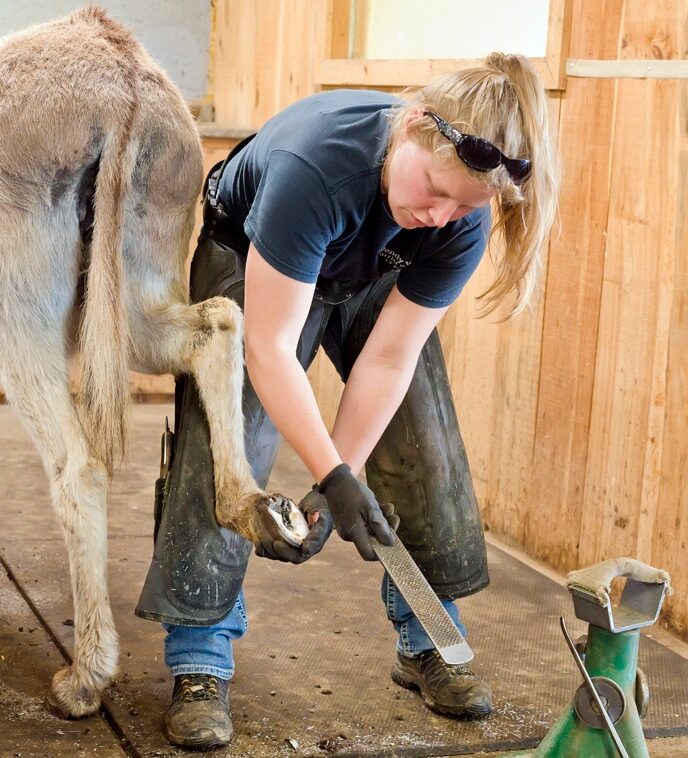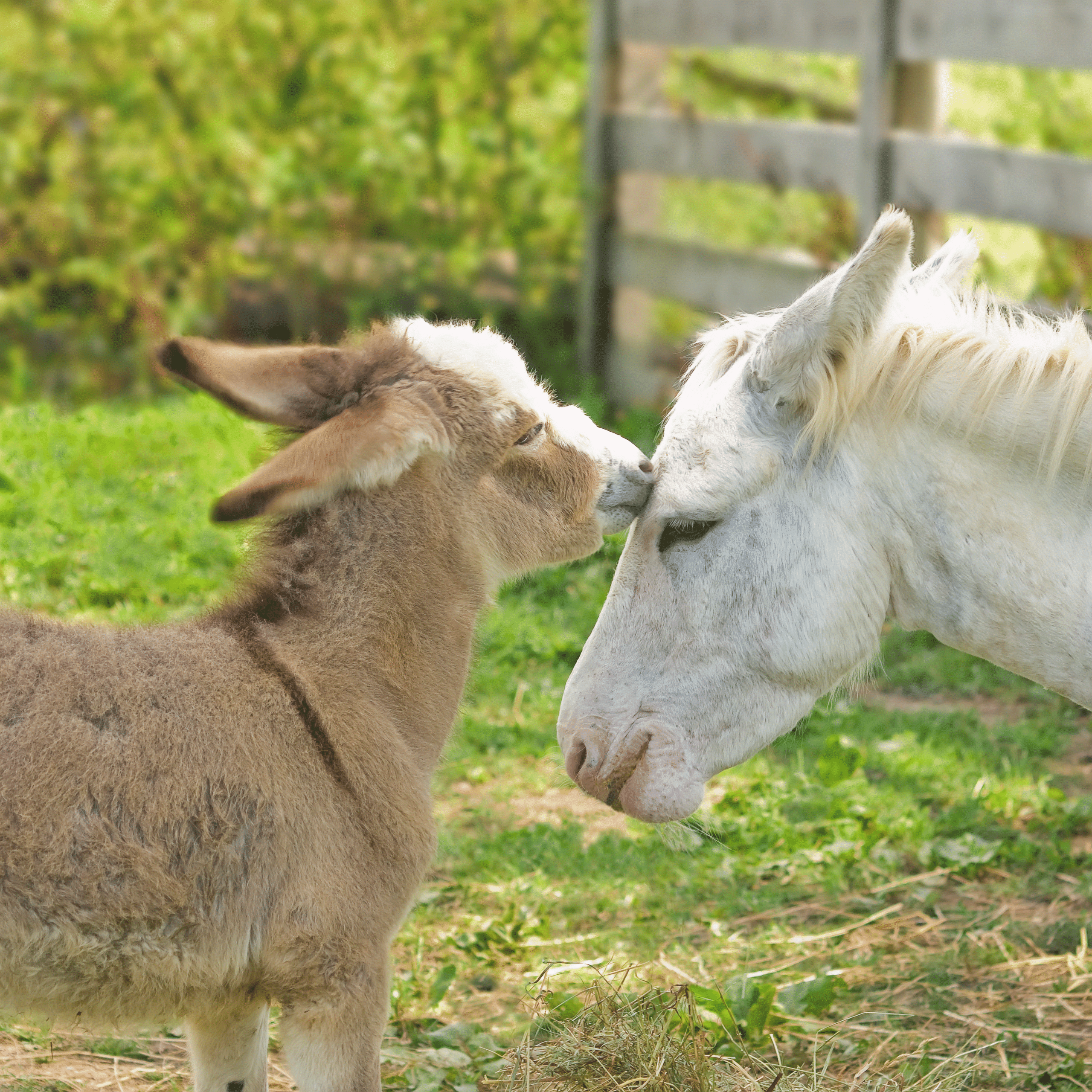Have you heard that donkeys are amazing guardian animals? While they do have strong protective instincts, donkeys vary in their behaviour and the idea that they’re perfect guardians isn’t entirely accurate. Their natural behaviours may not align with effective guardian duties.
It is not uncommon for donkeys to come into the care of the DSC because they have failed to be effective guardian animals. In fact, the first donkey to be rescued by what was to become the DSC was a failed guardian donkey. A neighbouring farmer had bought a donkey to guard a herd of goats. When the little donkey proved to be an ineffective guardian, the farmer saw no use for him and confined him to a stall, where he remained, lonely and despondent. When DSC founder Sandra Pady learned about the donkey, she arranged to purchase him. Thus, Sebastian became the first donkey to be rescued by what was to become the Donkey Sanctuary of Canada.
At the DSC we prioritize the health and well-being of donkeys, which is why we strongly advise against using them as guardian animals. Here’s why:
Donkeys thrive in social environments with their own kind. Isolation from other donkeys can lead to loneliness and behavioural issues. When isolated from other donkeys and expected to protect livestock, the stress of guardian duties can lead to serious health problems, including anxiety, and weakened immune systems. And while they may bond with another farm animal if given no other choice, their preference would be another donkey. Two donkeys placed together as guardians may bond with each other and fail to protect the livestock.
Donkeys have specific dietary needs that may not be compatible with the feeding routines of other livestock, complicating their care. For example, unlimited access to rich pasture is not suitable for donkeys. Additionally, they have specific and unique veterinary care that may differ from other farm animals. Constant exposure to predators and potential threats can cause undue stress and potential injury to donkeys and can impact their health and well-being.
Donkeys may become territorial and aggressive towards other animals, including the livestock they are meant to protect, especially if they perceive them as a threat or competition.
Instead of relying on donkeys for livestock protection, consider more effective alternatives like guardian dogs. Breeds such as the Great Pyrenees and Maremma are highly effective guardians.
Respect and care for donkeys by understanding their natural behaviour and needs. Let’s ensure they live happy, healthy lives without the burden of being guardian animals. #DonkeyCare #AnimalWelfare #FarmLife #GuardianMyth #RespectforDonkeys
